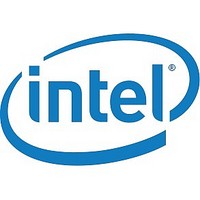MPCBL0050N02Q Intel, MPCBL0050N02Q Datasheet - Page 144

MPCBL0050N02Q
Manufacturer Part Number
MPCBL0050N02Q
Description
Manufacturer
Intel
Datasheet
1.MPCBL0050N02Q.pdf
(257 pages)
Specifications of MPCBL0050N02Q
Lead Free Status / RoHS Status
Supplier Unconfirmed
- Current page: 144 of 257
- Download datasheet (9Mb)
6.11
6.11.1
Intel NetStructure
Technical Product Specification
144
®
Progressive Boot Support
Progressive Boot is a feature added into the system to increase the availability of the
system in the event of the primary boot device being corrupted or unbootable.
Taking into account that a user has configured the second/third boot device as a fail
safe storage to store a recovery OS or a redundant OS image, the EFI BIOS attempts to
boot from the subsequent boot device as configured under the “Boot Device Priority
Submenu”. See
Progressive Boot Mechanism
Prior to OS boot process, the EFI BIOS acquires the IPMI watchdog timer to determine
whether the IPMI OS load flag has been expired. If the OS load flag has not been
expired, then the IPMI watchdog timer for OS load will be turned on, and the EFI BIOS
tries to boot the first boot device in the boot order. If an OS encounters a boot failure
and returns to EFI BIOS, then the EFI BIOS can try the next boot device in the boot
order. But if an OS encounters a boot failure and does not return to EFI BIOS, the IPMI
watchdog timer times out and resets the board. In the next OS boot process, the EFI
BIOS checks the IPMI watchdog timer to see whether the OS load flag has expired. If
the OS load flag has expired, then the IPMI watchdog timer for OS load is turned on,
and the EFI BIOS tries to boot the next boot device from the previous boot device that
caused the IPMI watchdog timer to timeout.
Figure 35
MPCBL0050 Single Board Computer
shows the boot sequence.
Section 7.6, “Boot Options Menu” on page 154
MPCBL0050—EFI BIOS Features
for details.
Order Number: 318146-001
September 2007










